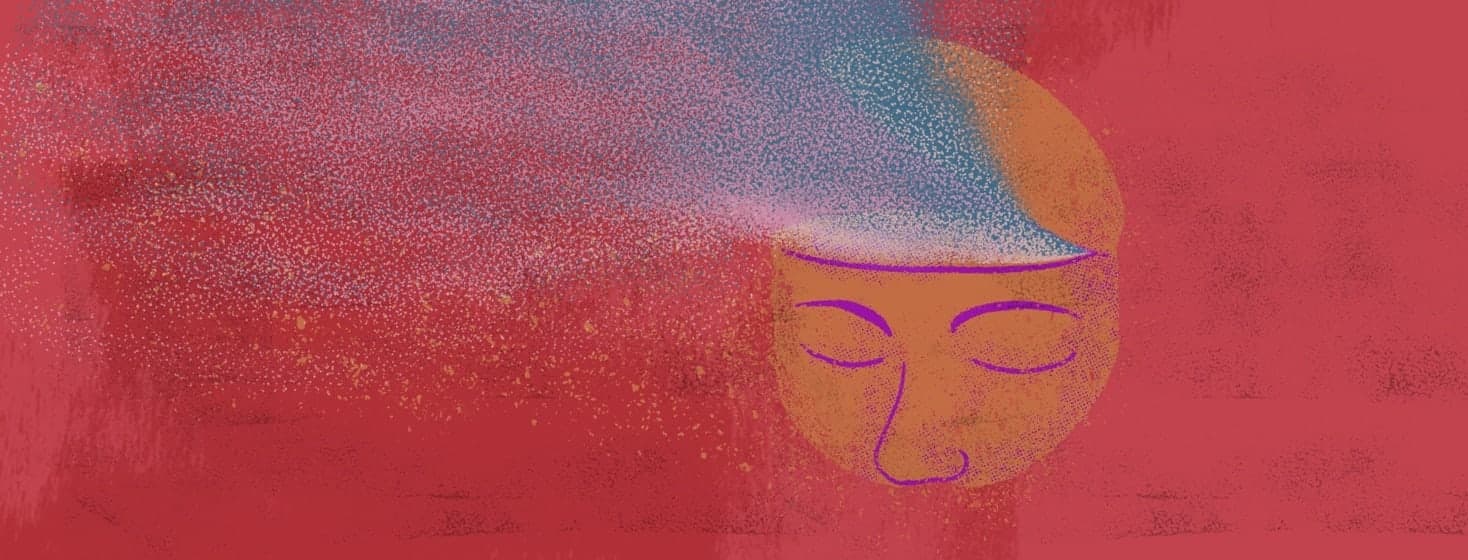Never a Dull Moment
If I were to describe my life with JRA, I would say: it’s never a dull moment. I’ve also described it as a rollercoaster ride or trying to swim to shore in a riptide. Or, three steps forward and two steps back, four steps forward, five steps back. These are apt images in a way but pretty hopeless; and, as the years go by, I’ve realized that the words I use to describe myself and my life matter, even the words I say privately.
I’ve realized this, because, as I’ve started to pay attention to how people describe their challenges, I’ve noticed that the way they talk says a lot about how they are responding to those challenges. Personally, I lean toward denial which has meant that, over the course of my life, I’ve downplayed and/or ignored my body’s needs more than I’d like to admit. I can also slip into hopelessness, as the above statements make clear. I’ve been around people who stay hyper-focused on every change in their bodies, especially the negative ones. And when I’m with them, hearing them talk makes me scared.
The power of denial
Now, we could debate about whether it’s healthier to deny or to be completely realistic to the point of continually focusing on the hard aspects of illness. I’m not sure there is a good answer, because both of these attitudes help and hurt in different ways.
Was there a benefit to living in denial?
My denial has led me to make bad choices in jobs that I’ve taken, relationships I’ve stayed in too long, and daily routines that push my body way too much. But it has also allowed me to “forget” that my fused wrists make bike riding difficult, and jump into adventures that I never would have experienced if I’d focused on my limitations. My hopelessness has shut me down emotionally, but also helped to be a counterpoint to propel me forward when things get really tough.
Denial shaped my decisions even as a child
My denial amnesia has sometimes gotten me into trouble, especially when I was younger and eager to prove to myself and the world that JRA was nothing but an annoying mosquito and nothing more. I’m lucky that my foolish foray into rock climbing did no lasting damage since the first time I was on a climb, I fell and hit my head. It wasn’t until I was twelve feet up that I realized my arms were too weak to hold me and, to this day, I know how lucky I was nothing worse happened than some stitches and a bad headache.
There were protective aspects to worrying
If I were more like my cohorts who focus on worrying, I would never have put myself in that situation and wouldn’t still have a scar on the back of my head. I wouldn’t have taken that hospital job, one so physically demanding that in the first month of being there, the PT I worked with, a young, fit, strapping young man, threw his back out. I wouldn’t have stayed with the many boyfriends who got irritated at my careful diet and strict bed-time, happy to go out without me when I was too tired.
But I also would have missed out on a big part of who I am, someone who likes to push her body on a bike or on a trail, every chance I’m physically able.
I'm currently trying to achieve balance
Every year that I live with disease I learn more about myself and gain more wisdom about how to be healthier in spite of rheumatoid arthritis. The willpower I valued so highly when I was younger because it helped me to keep going even when the pain was awful, I have redirected toward being diligent about balance and pacing myself, instead of forcing myself to adhere to a self-imposed standard based on denial of my actual reality.
It feels good to pay attention to how I think about myself and my disease because it has led me to a new way of approaching it. When I think differently about my disease, I start to act differently, and when I talk differently about it, the people around me act differently. Now that I know this, I know that my life is “never a dull moment”. which to me, says it all.
Being adaptable and resilient with RA
When I tell myself or the people around me that my life is never a dull moment, I say this knowing I’m adaptable enough to handle whatever comes my way. I don’t feel hopeless or overly worried, and I also don’t deny the fact that RA is horribly challenging every day. Instead, those words help me to meet RA every day with the mindset that I need to handle it as well as I possibly can.
And it helps the people around me to understand that the best way that they can help is to encourage my resilience, to support me in the fact that no matter what happens, I have the ability to continue to move forward in a positive direction eventually even if it isn’t happening in that moment.
As I go through life with JRA I realize that as long as I can tip the scales toward hope, adaptability, and resilience, I’m succeeding. And sometimes all it takes is the right phrase.

Join the conversation